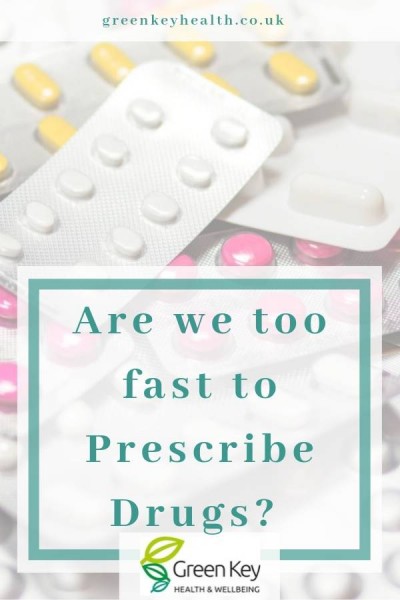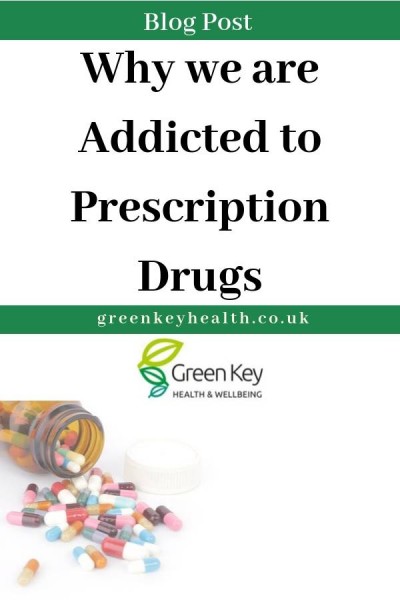
Some will say the recent news about addiction to prescription drugs is already “old”. But when compared to Brexit, this is certainly not the case!
The headlines I’m referring to include “Hundreds of thousands of people in England are getting hooked on prescription drugs, health chiefs fear.”
Watch my video on this topic here:
Classes of Misused Drugs
The research, requested by government amid concern that large numbers of people were misusing prescription drugs, included the following five classes of medicines:
- Antidepressants
- Opioid painkillers for acute pain and injury (excluding use in cancer patients)
- Gabapentinoids (used to treat epilepsy, anxiety and nerve-related pain)
- Benzodiazepines (mostly prescribed for anxiety)
- Z-drugs (sleeping tablets, including Zolpidem, Zopiclone, Eszopiclone, Zaleplon
The Research
Research carried out by Public Health England looked at the use of these drugs by a quarter of adults every year. The data was analyzed to ascertain how many people were taking these drugs outside of hospitals and for how long.
The research found that at the end of March 2018, 50% of people using these drugs had been on them for at least 12 months, with roughly a quarter having used them for at least three years.
Officials said, “Long-term use on such a scale could not be justified and was a sign of patients becoming dependent”.
The major concern is that these drugs are addictive.
 Is There No Non-Addictive Alternative to Prescription Drugs?
Is There No Non-Addictive Alternative to Prescription Drugs?
Putting everything into perspective – pharmaceutical drugs have a place in re-establishing wellness in individuals. However, are we too fast to prescribe drugs for disorders such as poor or lack of sleep, anxiety and mild depression when there are non-invasive alternatives available?
These include homeopathic medicines and herbs, treatments such as reflexology or kinesiology, movement and breathing through Tai Chi, Qigong, meditation and mindfulness that access the inner core, aiding relaxation, inner calmness and balance. All help build sustainable techniques for managing uncontrollable thoughts, understanding triggers that lead to anxiety and social withdrawal.
Why Are We Not Turning to Alternative Approaches?
There are a number of things at play, in answering this question:
 Lack of knowledge: Not everyone knows about the types of exercise that could be beneficial. They are sound and sustainable alternatives to conventional medicine, and to managing uncontrollable thoughts, anxiety and life’s curve balls.
Lack of knowledge: Not everyone knows about the types of exercise that could be beneficial. They are sound and sustainable alternatives to conventional medicine, and to managing uncontrollable thoughts, anxiety and life’s curve balls.
We expect a quick fix: Is there such a thing as a quick fix for anxiety, depression and poor sleep? Even using conventional drugs, especially those used for depression, take time to work. As we are all unique, they sometimes do not work for everyone.
Doctors lack the knowledge of alternative approaches to healing: I am not having a dig at our medical doctors with this statement. It is simply a fact. Medical education spends very little, if any time, on alternative medicines and naturopathic approaches that can be applied to managing our lives and ourselves more effectively. When these interventions are recommended early they can not only turn the ship around, but also halt the process before it hits stormy seas.
Too quick to prescribe pharmaceutical drugs: This is more of a question than a statement, and of course depends very much on the individual doctor -patient relationship. Perhaps trying other approaches first, in non-acute cases where patient’s safety is not a concern, would be more effective?
The patient has to participate in healing: Healing is not something that is done to you. The patient is an integrative part of the healing process. When an expectation comes from the point of view that healing comes from an external source, or that “it is the doctor’s job to heal me”, the chances of success either through conventional drugs or otherwise is limited, because whatever is causing the dis-balance will continue to impact the state of health.
Dis-ease is not an isolated part, it is a part of the whole: Allopathic medicine focuses on the dis-ease, whatever that is labeled as – anxiety, depression, hypertension etc. Dis-ease affects the whole person and the whole person creates the disease. Is it time that allopathic medicine started to change the approach to diagnosis and treatment?
What Can You do for Yourself?
There is a lot that you can do for yourself whilst working with a combined approach of conventional doctors and alternative practitioners, such as homeopathy, herbalism, kinesiology, naturopathy etc.
- Many plant medicines are non-invasive, safe and extremely effective in addressing the underlying cause as well as the condition itself. A homeopath will prescribe homeopathic medicine that suits the constitution of the individual. An herbalist will prescribe herbs that treat holistically at the same time addressing the condition. Respecting plant medicines is important. Always work with a specialist practitioner to ensure herbs prescribed are good quality and safe.
- Fresh air and nature are very healing. Breathing in fresh air whilst exposing our skin to sunlight helps the body to manufacture vitamin D essential for healthy bones, skin and overall positivity.
- Signing up for a local class in gentle exercise, preferably a class that helps with improved breathing, such as Qigong, Pilates or Yoga. Breathing helps strengthen inner calm and improve brain function through increasing oxygen in the blood, and stimulating the release of endorphins, the feel good factor into the brain.
- Diffusing good quality essential oils can be very uplifting, energizing and calming depending on what it is you want to achieve. Lavender to calm anxious feelings; Rosemary helps with concentration and focus; and Peppermint is uplifting.
- Limit toxins in your home – use natural household chemicals to clean the home, as well as on the body.
- Wheat and gluten sensitivity – anyone who is sensitive to wheat/gluten will find that cutting this out of the diet has a positive and almost immediate effect on the brain and mind.
References:
https://www.bbc.co.uk/news/health-49639914
New here? I write about how to take a holistic approach to health and well-being, to treat illness and help you be the best you can be. You can read similar blogs here:
Does your Work day Eat into your Lunch Break?
Are you Drinking enough Water?
Muscle Memory, Loneliness and Health
Do you love Pinterest as much as I do? Please pin any of these graphics!




Add new comment